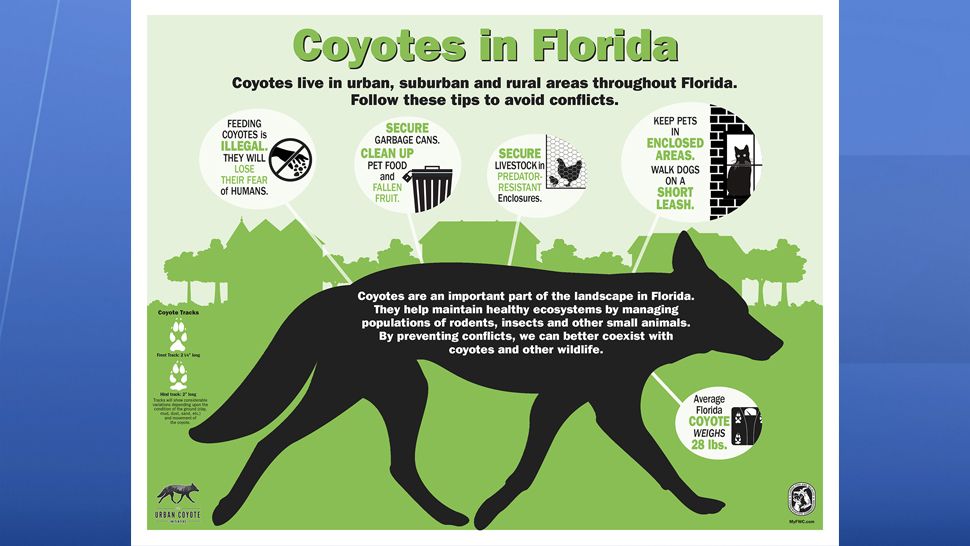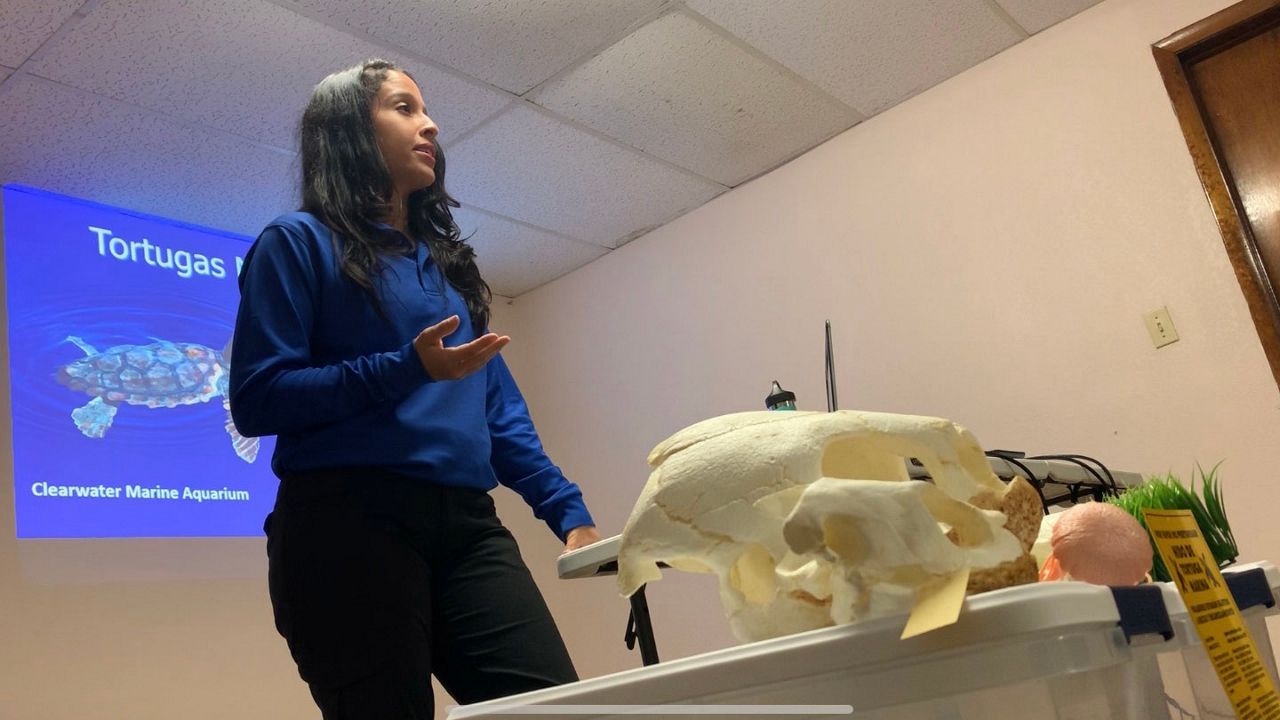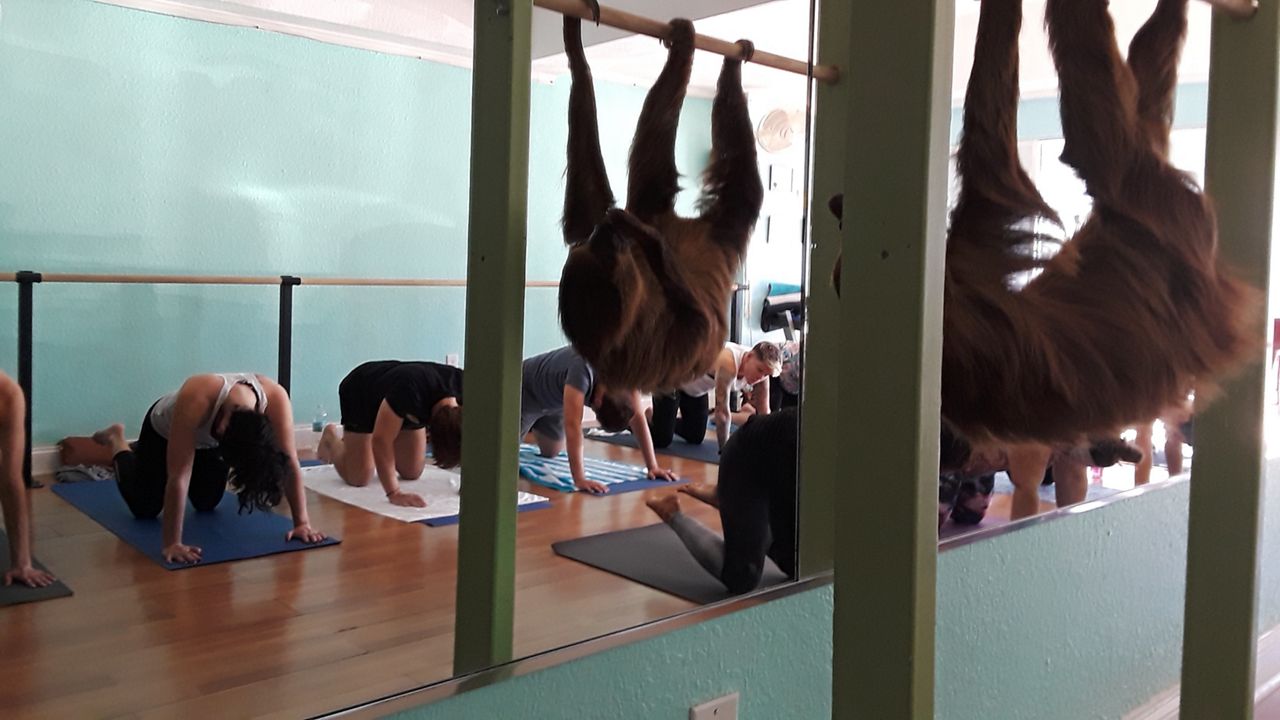TEMPLE TERRACE, Fla. — The City of Temple Terrace is reporting an increased number of coyote sightings in the Temple Terrace area.
City officials are urging residents to be aware of your surroundings and educate yourself about the precautions to take to keep you, your kids, and your pets safe.
If you see a coyote acting aggressively, please report it to FWC at 863-648-3200.
Here are some facts about coyotes:
- Coyotes are found throughout Florida.
- Coyotes have been documented in all 67 Florida counties, according to a 2007 FWC report.
- The medium-sized canine is a close relative of the domestic dog.
- Coyotes are extremely adaptable and can be found in rural, suburban, and urban landscapes.
- Coyotes are typically shy and elusive, but encounters between people and coyotes in Florida are occurring more often.
- Coyotes help maintain balanced ecosystems; control populations of rodents and small predators like foxes, opossums, and raccoons.
- Coyotes are native to North America.
- Coyotes are in Florida due to natural range expansion from western states.
- Coyotes now live in every state but Hawaii.
Follow these tips to avoid encounters with coyotes:
- It is illegal to feed coyotes. They will lose their fear of humans.
- Secure garbage cans. Clean up pet food and fallen fruit.
- Secure livestock in predator-resistant enclousures.
- Keep pets in enclosed areas. Walk dogs on a short leash.
- Close off crawl spaces under porches and sheds to prevent coyotes and other animals from resting or raising their young around your home.
What should you do if you see a coyote?:
- Coyotes rarely pose a threat to people, especially adults.
- Coyotoes are curious but also timid and generally run away if challenged.
- If the coyote approaches too closely, haze the animal by making loud noises and acting aggressively.
- Wave your arms in the air and yell loudy; continue hazing until coyote leaves area.
- Use noisemakers, such as air horns, banging pots and pans.
- Throw small stones or sticks toward—but not at—the animal.
- Do not attempt to hurt the coyote—injured animals will defend themselves.
Protecting pets from coyotes:
- Coyotes prey on domestic cats and small dogs.
- Most attacks on pets occur either at night or in the early evening and morning hours.
- Do not allow pets to roam freely.
- Keep cats indoors.
- Walk small dogs on a short leash.
- Be careful of walking pets in wooded areas.
- If pets are kept in a fenced yard, be sure the fence is at least 6 feet high.








